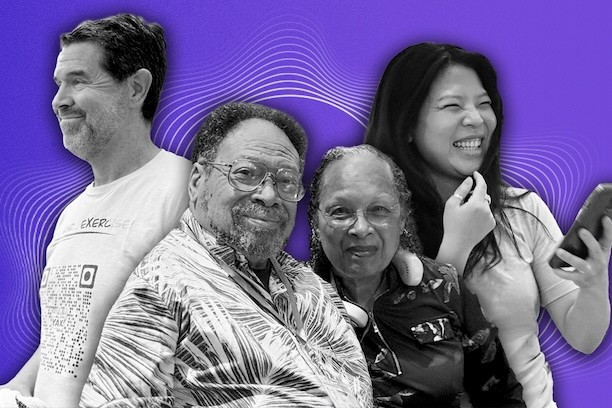When I read the name of this live stream, “Managing Urinary Challenges with PD,” I immediately thought of another event recording (and one I presented at!) “Lips Sealed: What You’re Not Telling Your Doctor.” The latter discusses an alarming statistic: 82% of us are withholding something. Urinary challenges are at the top of the list and educating ourselves to feel empowered and not embarrassed is crucial.
However, let’s share a laugh before we learn…
Munschworks, a book of stories by Robert Munsch, was a favorite in the DePorter house. While it is a children’s book, it is a treasure trove of life lessons for any age. The story “I Have to Go” provides a bit of levity and laughter about our taboo subject. Because let’s be honest – many of us have been a version of Andrew.
Now, let’s educate ourselves on our speaker, Dr. Fernando L. Pagan. He is the Vice Chair and Professor of Neurology, Director of the Movement Disorders Program, and Medical Director of the Parkinson’s Foundation Center of Excellence at Georgetown University Hospital. Using easy-to-follow slides, Dr. Pagan explained Urinary Challenges in greater detail. I was eager to learn but relieved to be hidden behind my computer screen.
A few highlights I noted during the webinar:
- We have all been asked, “What does Parkinson’s do to you?” Dr. Pagan gave us a spot-on answer: “Parkinson’s robs us of our Auto-Pilot.” The autonomic responses we take for granted are no longer automatic.
- Urinary challenges correlate with dopamine deficiency and can worsen when medications are wearing off.
- Certain Parkinson’s medications can exacerbate urinary symptoms.
- It’s essential to see a urologist who understands the neurogenic bladder.
- There are pharmacological and non-pharmacological treatments, including dopamine agonists, physical therapy, and bladder training, but some pharmacological treatments for other patients experiencing the same type of symptoms may not be suitable for Parkinson’s patients.
- The detrusor muscle is a smooth muscle that becomes tight and overactive with dopamine deficiency, causing patients to experience the feeling of urgency but without a full bladder.
- Urinary retention/a non-emptied bladder contributes to Urinary Tract Infections (UTI).
- Sleep directly correlates with quality of life. While adequate sleep is empowering and leads to a good day, the lack of sleep caused by Nocturia, or frequent nighttime urination, can be debilitating.
- Urinary challenges, like many Parkinson’s symptoms, can affect care partners as well as the person with the disease both physically and emotionally.
This is just one viewer’s insight! I encourage you to watch the recording yourself or visit the NeuroLife Online Video Library to explore other related resources. Until next time – life happens. Find some laughter in it and explore Laugh Yoga – it’s good for you!


